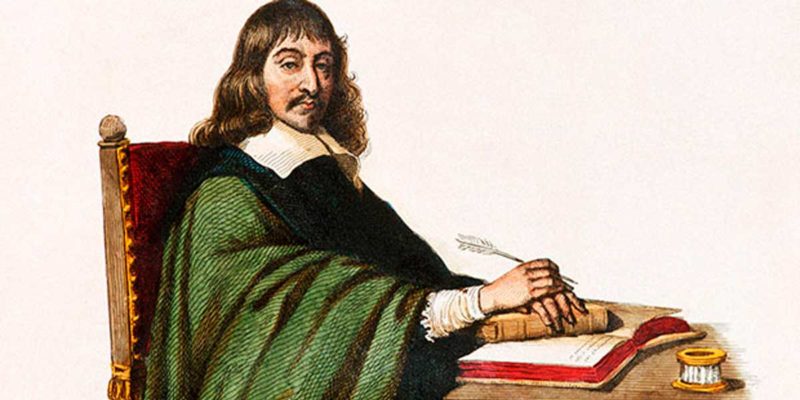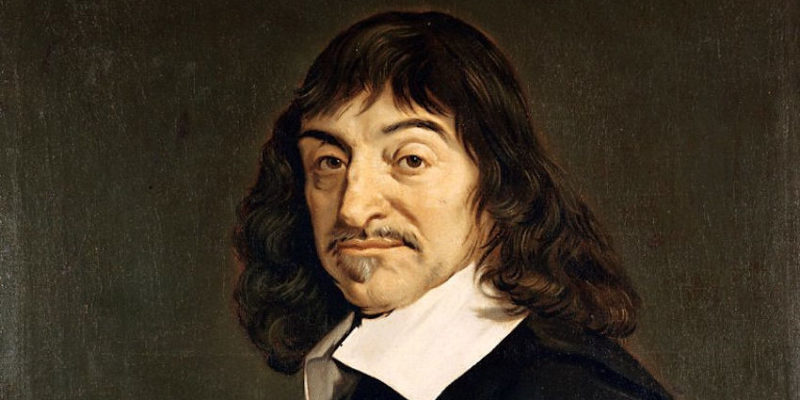We explain what rationalism is, its origin and main characteristics. In addition, we explore its representatives, etymology and more.

What is rationalism?
Rationalism is a school of philosophy that champions the primacy of reason as the source of knowledge. It emerged in the late 17th century in France, and regarded reason as the only reliable source of knowledge and access to truth. Its major figures were René Descartes, Baruch Spinoza and Gottfried Leibniz.
In direct opposition to English empiricism, which believed in sensory experience as the way to understand the world, rationalism held the view that knowledge comes from the intellect and from reason as the faculty that recognizes knowledge.
For rationalists, the senses are not a valid source of knowledge, since they are susceptible to deception. This is one of the principles that gave way to the dispute between rationalists and empiricists.
Descartes, Leibniz, and Spinoza were among the most prominent rationalists to introduce mathematics and geometry as systems of knowledge to be applied in philosophy. All three saw in these systems of knowledge the ways to warrant the access to truth and indubitable knowledge. An example of this is Descartes' use of the deductive method or Spinoza entitling his most important work Ethics Demonstrated in Geometrical Order.
The term "rationalism", from the Latin ratio meaning "reason" or "calculation", refers to the human capacity to establish relationships between various concepts in order to understand the world.
- See also: Relativism
History of rationalism
Philosophical rationalism emerged in opposition to the medieval theological thought prevailing in France in the 17th century. This thought, primarily Christian and Thomistic, held that truth could only be attained through the sacred scriptures and through divine revelation.
In this context, rationalism was defined as a school of thought which sought to explain human experience and the events around it on the grounds of logic, the intellect and the use of reason.
From a historical standpoint, this was made possible thanks to the new ideas of the Renaissance, which challenged the prevailing theological system. At the same time, the religious crisis experienced by the Catholic Church following Luther and the advent of Protestantism paved the way for a new philosophical search for truth which would be independent of the institutions or any other forms of power whatsoever.
Broadly speaking, René Descartes (1596-1650) is regarded as the father of rationalism, as well as the founder of modernity. His work challenged the criteria for truth established by the prevalent scholastic philosophy at his time and indicated the need for a new way to attain and build knowledge. With the publication of Discourse on the Method (1637) and Meditations on First Philosophy (1641), Descartes made a revolutionary philosophical shift whose impact is still felt today.
The formulation of the Cartesian ego cogito (the "thinking self" aware of its existence while it thinks) marked a turning point in the history of Western philosophy and exerted such a profound influence that it continues to be a subject of philosophical discussion and debate to this day.
The formulation of the cogito not only laid the ground for rationalism as a school of philosophy but also paved the way for many other philosophers and thinkers who otherwise could not have supported their theories. The Critique of Pure Reason, published by Immanuel Kant in 1781, stands and presents itself as a total conciliation between rationalism and empiricism, opposing philosophies until then.
Main postulates of rationalism
Rationalism is a school of philosophy that emerged between the sixteenth and seventeenth centuries. Major figures of rationalism include Descartes, Leibniz or Spinoza. Common rationalist ideas that can be traced in these writers are:
- Concepts are innate. Rationalism regards knowledge not acquired through learning or experience as innate. It is assumed that innate concepts exist in the human mind from birth and were placed there by God or some other creating entity.
- Reason is the source of knowledge. All rationalists, beyond their differences, hold that reason is the source of knowledge par excellence, since it is through reason that one can access the truth of things.
- The senses give uncertain knowledge. While not all philosophers of this school condemned the senses as a source of knowledge, most agree that any learning gained through sensory experience is not as certain as knowledge gained through reason. The senses can be deceptive, can be prone to error and often fail.
- All knowledge is deductive in nature. Descartes, Leibniz and Spinoza claimed that mathematics should be a model to be imitated by all sciences, since the truths we find in it, are warranted by the deductive method which, when properly applied, leaves no room for error.
Major figures of rationalism

Among the major figures of rationalism are:
- René Descartes (1596-1650). A French philosopher, mathematician and physicist, he was the first modern rationalist. Descartes laid the foundation for rationalism with his work Discourse on the Method and his contributions were of great influence on philosophy, mathematics and physics. One of his most famous dictums is: "I think, therefore I am".
- Baruch Spinoza (1652-1677). A Dutch philosopher, he was noted for positing the relationship between reason and passions. Spinoza considered passions to be types of affects and therefore, an idea of reason. His concept of passion is related to the Greek philosophy of Stoicism, which stated that feelings could be controlled by the individual's will.
- Blaise Pascal (1623-1662). A French mathematician, physicist and philosopher, Pascal is best known for his notable contributions, such as the arithmetic machine, his new theories of the vacuum and the Treatise on the Equilibrium of Liquids. As far as philosophy is concerned, he argued that religion (or the need to believe) was the manifestation of the infinite anxiety of the human condition.
- Gottfried Leibniz (1646-1716). A German polymath, philosopher and politician, Leibniz stood out for his many contributions, such as the mathematical differential calculus, the binary system (which later became the basis for programming language), or dynamics as part of the physics which studies movement. He affirmed that every fact requires a sufficient reason.
Rationalism and empiricism
Both rationalism and empiricism emerged between the sixteenth and seventeenth centuries. Both had skepticism at their core and agreed on the need for a new way to do philosophy and to explain the nature of knowledge.
On the other hand, the point on which rationalists and empiricists could not come to terms was the source of knowledge: the senses or reason.
Whereas empiricism held that all knowledge begins with sensory experience, rationalism viewed reason as its source. Thus, both schools of thought are in direct opposition concerning the origin of knowledge and truth.
The dispute between rationalism and empiricism extends to this day, even if various thinkers have tried to reconcile both views.
The most successful attempt was made by Immanuel Kant, who saw a possible reconciliation in the process of knowing. According to Kant, while it is true that all knowledge begins with experience, reason is necessary to give order and unity to the multiplicity perceived through the senses, which is per se chaotic and unintelligible.
References
- Verneaux, R. (1999). Epistemología general o crítica del conocimiento. Herder.
- Fraenkel, Carlos; Perinetti, Dario; Smith, Justin E. H. (eds.). (2011). The Rationalists: Between Tradition and Innovation.
- Pereboom, D. (ed.). (1999). The Rationalists: Critical Essays on Descartes, Spinoza, and Leibniz. Rowman & Littlefield.
- Descartes, R. (2004). Discurso del método. Ediciones Colihue SRL.
- Descartes, R. (2011). Meditaciones metafísicas. Alianza Editorial.
- “What is rationalism?” (video). Study
- “Rationalism”. Britannica
- “Racionalismo: la razón para llegar a la verdad”. Filco
- “Racionalismo”. Filosofía en español
- “Spinoza contra la extirpación estoica de las pasiones”. Digitum UM
- “Pascal, el niño prodigio de las matemáticas que descubrió un nuevo mundo de probabilidades”. BBVA open mind
Related articles:
Was this information useful to you?
Yes NoThank you for visiting us :)